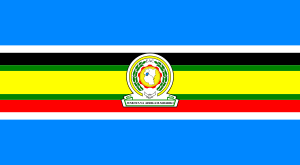East African Community Member States Seeks Joint Piracy Patrol

Bartamaha (Nairobi):- Following a long time of Somali pirates’ attacks along the eastern African coast and the Gulf of Aden, the East African Community member states are seeking cooperation to suppress and prevent the attacks.
Regional communication ministers attending a meeting in Arusha of the seventh sectoral council of ministers of transport, communications and meteorology, noted and discussed the economic and transportation impacts for the region of the continuing piracy off the Somalia coast.
The meeting, chaired by Rwanda’s infrastructure minister Vincent Karega, directed the EAC secretariat to develop an agreement on cooperation to suppress and prevent the piracy and other forms of armed robbery on ships, in line with the International Maritime Organisation recommendations.
The council instructed the secretariat to develop a proposal on the establishment of a regional maritime patrol unit, and to tap into the current international goodwill and pool resources to fund it.
The ministers urged partner states to continue to support efforts of the IMO, African Union, Igad and other international organisations aimed at fighting piracy in the Indian Ocean, including the implementation of the code of conduct about piracy — the Djibouti Code of Conduct.
Richard Owora Othieno, the principal communication officer at the EAC headquarters in Arusha, told The EastAfrican recently that the partner states regard the Indian Ocean, specifically the eastern African coastal line, as the region’s strategic economic lifeline, in terms of the gateway for imports and exports as well as the natural resources in those areas.
The pirates’ activities impact negatively on the region’s imports and exports that pass through the Somalia coast, and this has been a serious threat to global trade.
Piracy is also a security threat to the region as a whole, an aspect that makes any form of the activity a major concern to all the governments.
“As a community, there is currently no harmonised position or strategy on the piracy menace,†Mr Othieno told The EastAfrican at the time the piracy peaked.
Awkward results
According to the International Chamber of Commerce and the International Maritime Bureau (IMB), the number of piracy incidents reported by 2009 had surpassed the total number reported in 2008, putting global trade, particularly in the Horn of Africa, at an awkward position.
The total number of attacks reported to the IMB in September, 2009, was 294.
Of these, 34 resulted in successful hijackings of vessels. Some 559 hostages were taken during these hijackings.
Of the 2008 figure, a bigger share of hijackings took place off the coast of Somalia, either in the Gulf of Aden or off the country’s east coast in the Indian Ocean.
Some 97 of the attacks took place in the Gulf of Aden, while 47 happened off the rest of the Somalia coast.
The council expressed concern over the implementation of infrastructure projects and programmes at the regional level.
The ministers stressed the need to address the problems stifling progress in view of the coming into force of the Common Market in July 2010.
They singled out the progress in the rehabilitation and upgrading of the rail infrastructure in the region, noting that this mode of transport has the potential to bring down the cost of transport in general and help to break many of the current non-tariff barriers associated with road transport. TheDailynation
———-
Source: Ethiopian journal.
Comments
comments
 Calendar
Calendar





































